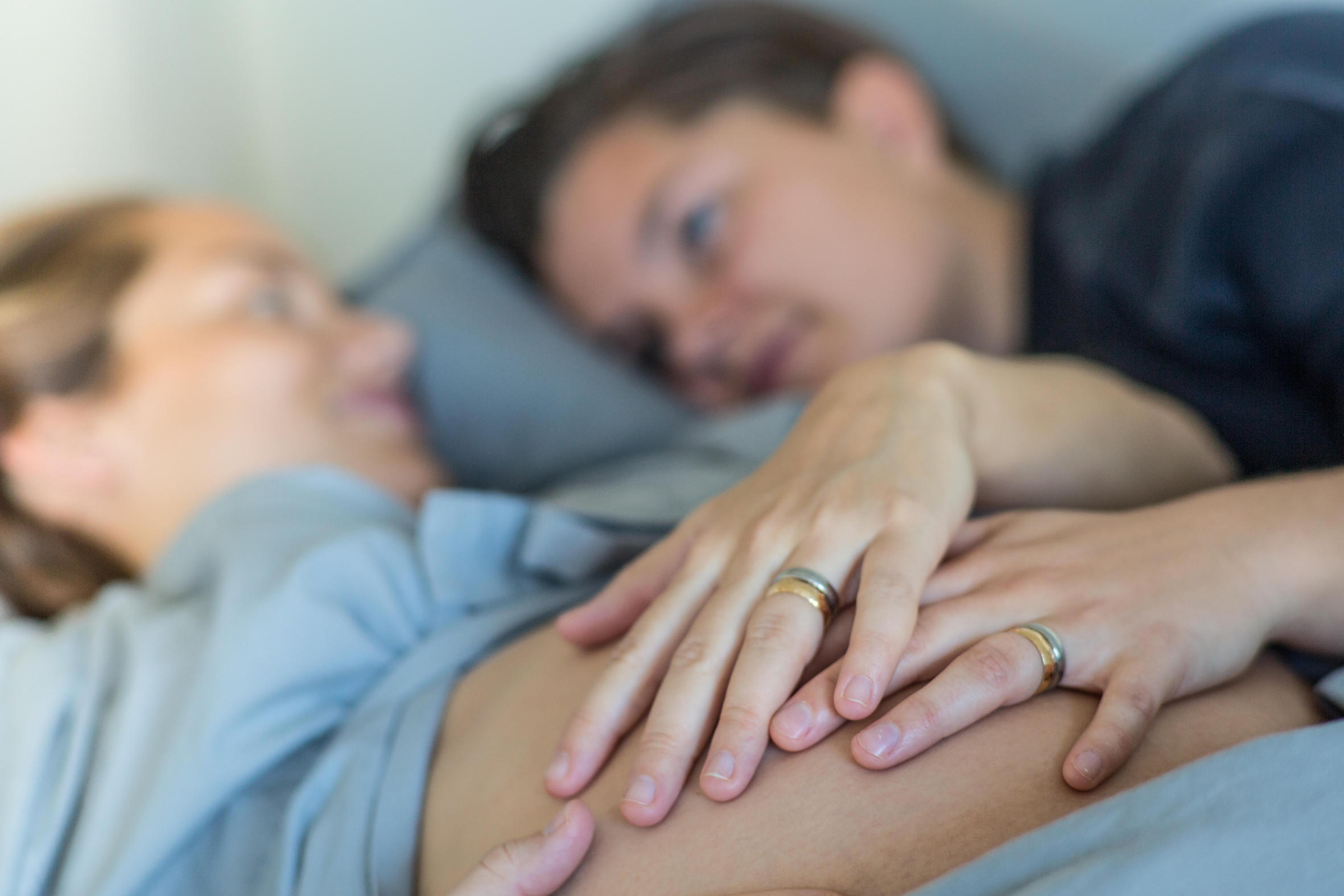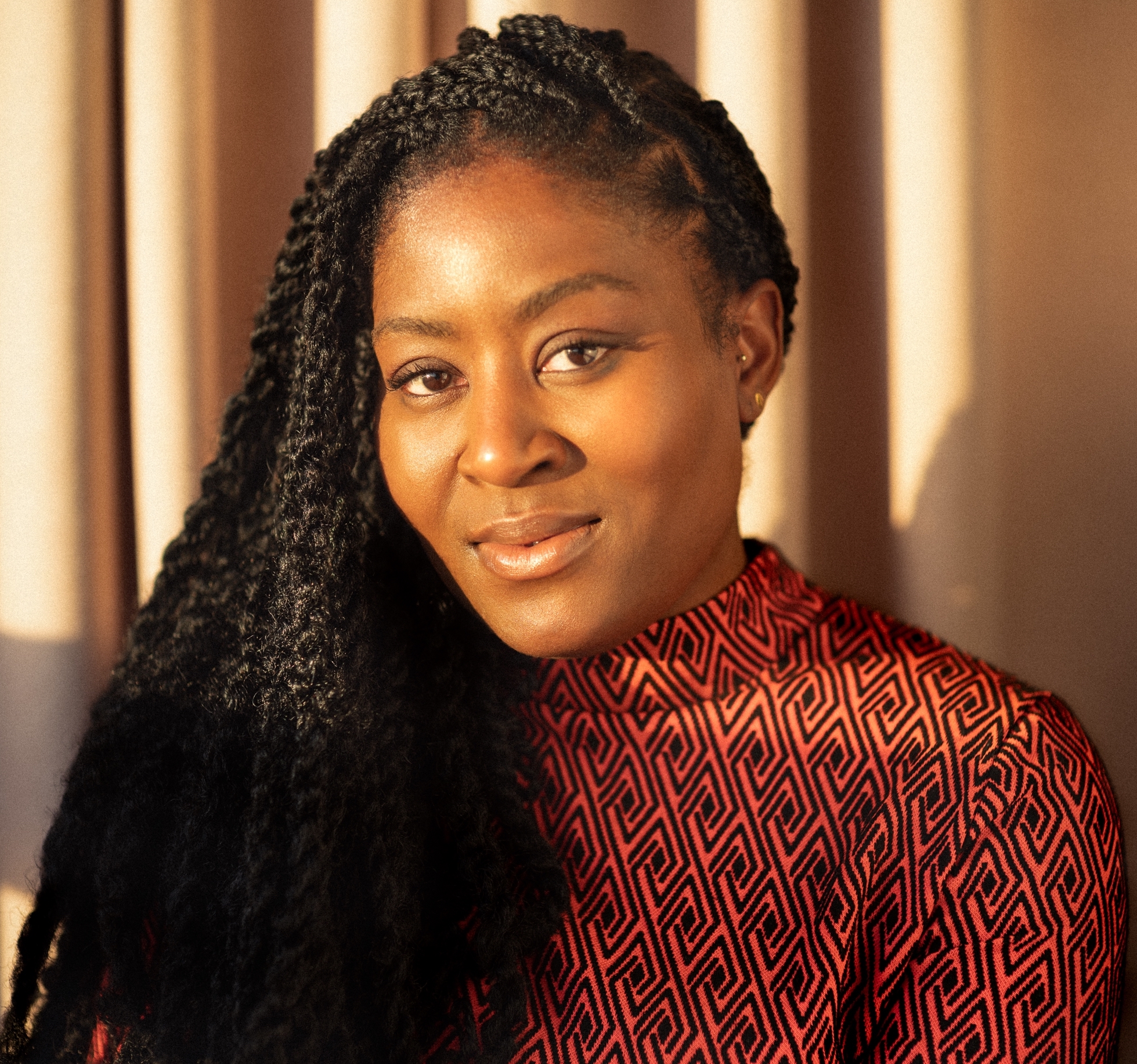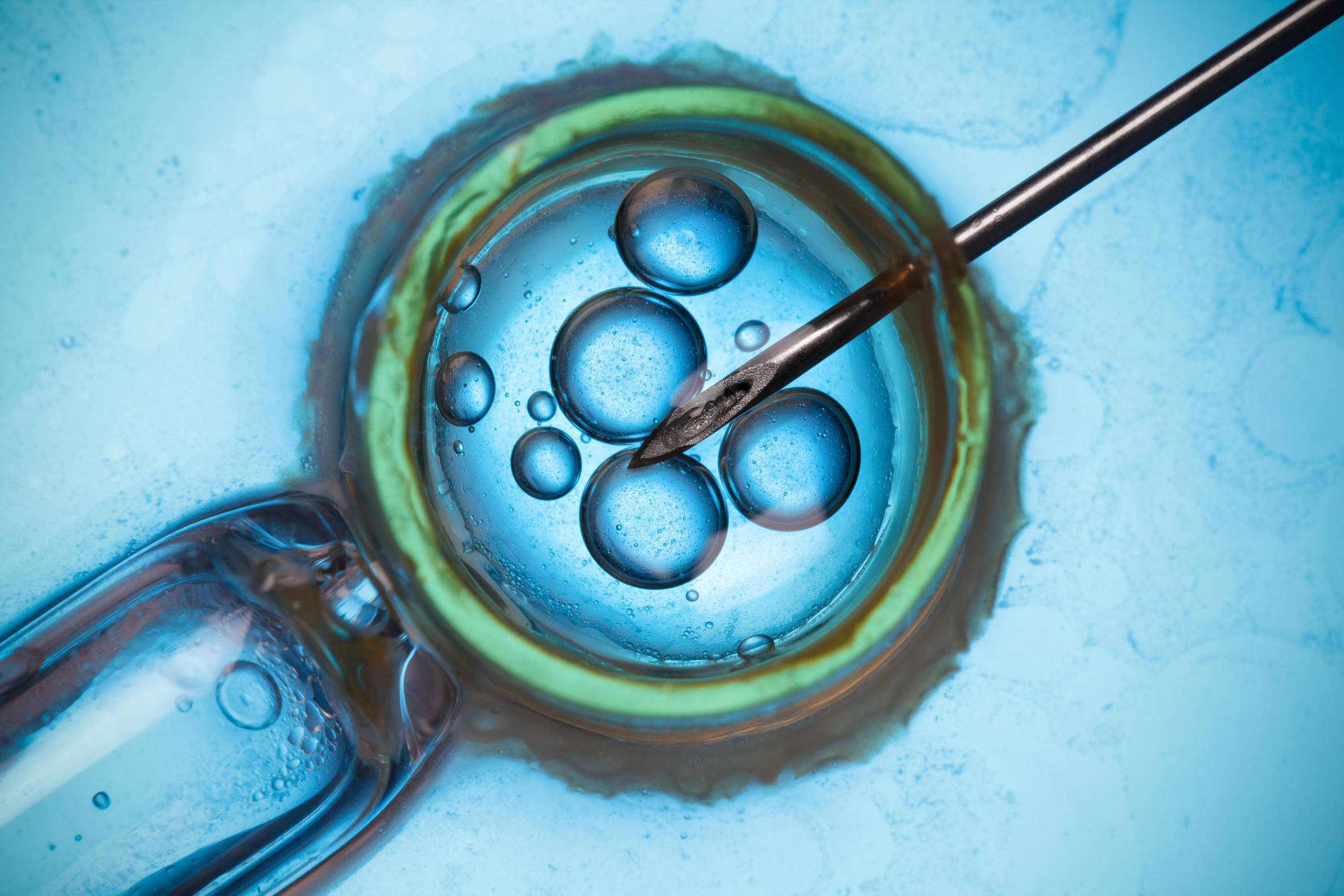Black and brown doulas could reduce racially skewed maternal deaths
Pregnant people of colour are far more likely to experience abuse, trauma and death during and after childbirth. Even the doula sector is overwhelmingly white - but some professionals are pushing against the grain.
In March 2023, a pregnant Black woman died at a hospital in Liverpool. An inquiry found that her death was avoidable, and a factor contributing to the loss of her life was ‘cultural and ethnic bias’.
The 31-year-old had a miscarriage and returned to the hospital after experiencing pain. A probe last month revealed that ‘unconscious cultural bias delayed the timing of diagnosis and response to her clinical deterioration’ and ultimately her death.
With 67% of perinatal services in the UK deemed ‘not safe enough’, and marginalised pregnant people bearing the brunt of this lack of safety, the route to safe birth and pregnancy endings can feel terrifying. The joy of birth and the necessity of accessing abortion care is too often overshadowed by the fear of becoming another ‘Black statistic’ and experiencing harm at a time when you need the most care.
What you need in this situation - particularly if you’re a person with lived experience of being racialised - is someone by your side who can provide specialised support, expert guidance and advocate for your needs - this is what doulas do. However, Black and Brown doulas are a scarce resource in an industry that has been significantly whitewashed and gentrified, leaving the most vulnerable groups with the least access to support.
15.7% of birthing people experience trauma symptoms after birth, the main function of childbirth doulas is to reduce harm and trauma during such a tender time. Doulas support all birthing experiences - from abortion to miscarriage, stillbirth, birth and the postnatal period. This takes the form of emotional and practical support, with a strong emphasis on advocacy and increasing the pregnant person’s awareness of their rights. These services are intended to help people feel safer and more empowered in their birthing experiences, especially for those who are unfamiliar with the NHS or are more likely to experience harm when navigating it.
Doula work can be life-changing, but getting a doula can be extremely expensive. Many don’t even realise that doula support is something that could be relevant, affordable or accessible to them, even though doula work has been evidenced to improve birth outcomes for marginalised people. These outcomes are not only observed in the confidence and safety a pregnant person feels when giving birth, but in the reduction of birth trauma for doula-assisted people, as well as the health of their newborn child.
In studies that specifically compared the experience of marginalised women with and without doula support, doula-assisted people had ‘fewer birth complications and more satisfying experiences during labour, birth and postpartum.’
"People will be minutes from death and still there won’t be a doctor or midwife to help them. If there is someone, odds are they won’t take what they’re saying seriously.”
Most doulas are white middle-class women serving white middle-class women, who can charge extortionate amounts for their work. Black and Brown doulas are a minority, but the majority of their client base are Black and Brown. The average cost of a doula is between £500 - £2,000, but the unregistered nature of doula work means that many can charge thousands for a full birth package.
The lack of representation (of both doulas and clients) and the reputation of being an expensive service is why doula work is often associated with privilege and luxury, instead of being seen as a necessity for many vulnerable people during their pregnancy.
‘The system is broken’
Eshe Kiama Zuri is a doula from Nottingham who provides free emergency doula support to marginalised people that may struggle to access doula support because of cost, discrimination, or complex life circumstances.
For Zuri, the need for doula work is simple: “People are always going to be going through perinatal cycles,” they explain. “I think it’s really really important that as communities we learn how to support it so people are not pushed into the hostilities of the NHS and other structures.”

“There is harm with the clinical birth experience and harm with the clinical perinatal experience.” Eshe Kiama Zuri, doula.
Sara Bakr,a doula based in London, believes doula support “should be a want and not a need.” The reality, she says, is that most doulas exist to bear witness to the harm our institutions inflict on marginalised people.
“There’s a lot of prejudice. There’s a lot of abuse and negligence,” Bakr tells The Lead. “Every time I go into hospital, I can see how stretched the NHS workers are, and a lot of my work is being an extra person that can stand there and support your clients as they try to navigate it all.”
Zeyneb*, an abortion and grief doula, echoes this: “Even before I was a doula, I felt like every other day I was hearing stories about how people were suffering. People will be minutes away from death and still there won’t be a doctor or midwife around to help them, and if there is someone, the odds are they won’t take what they’re saying seriously.”
A significant part of Zeyneb’s work is supporting people who have lost their babies or experienced birth trauma that has impacted their ability to parent and function, much of which they attribute to the treatment their clients experience in hospitals.
“Grief has always been part of the human experience, but what I cannot accept is the amount of grief and suffering that happens because the system is broken,” says Zeyneb. “There is so much that needs to be done to decolonise the NHS - if that’s even possible - and absolutely none of that can happen when midwives are struggling to make ends meet and then coming to work to take on the responsibilities of an entire team of staff when they’re literally one person.”
In 2022, NHS staff shared testimonies of feeling ‘anxiety and fear’ about ‘working in a service where the level of risk is higher than it should be’, in an All-Part Parliamentary Report. Some even submitted evidence on how understaffing in their wards contributed to ‘harm and even death’ on many occasions. This understaffing and underfunding are direct consequences of the austerity and NHS cuts enforced by the Conservative governments.
These factors, coupled with the problem of systemic racism in maternity care, make it easier to understand how perinatal health outcomes remain so poor in the UK for the most marginalised. Of the 293 cisgender women who died in 2020-22 during pregnancy or within 42 days of the end of pregnancy, Black women were 3x more likely to die during childbirth than any other racial demographic. Asian women were twice as likely.
Additionally, the 2019 MMBRACE report found ‘routine violations of the right to informed consent’ as well as ‘coercion and obstetric violence’ for Black, Brown and mixed ethnicity people during their birthing experiences.
With a general election on the horizon, commitments to improving healthcare outcomes after more than a decade of austerity should feature heavily in party manifestos. When asked about Labour’s commitment to improving perinatal services, Bell Ribeiro-Addy - Labour MP for Streatham - tells The Lead: “The inequalities Black and Asian mothers face throughout the birthing journey remain stark. I'm glad the Labour frontbench has listened to campaigners on this and committed to new, binding targets to address these inequalities through its Race Equality Act.
She adds: “The colour of a mother's skin should have no impact on her health outcomes or her baby's.”
Zeyneb adds: “It’s important to call it violence because that’s what it is. It’s too simple to say people aren’t being listened to. What actually happens is that people are intentionally not respected.
“Grief has always been part of the human experience, but what I cannot accept is the amount of grief and suffering that happens because the system is broken.”
“This isn’t because a midwife woke up one day and decided not to listen to Black women, but because that’s what they were taught to do and how pregnancy has been taught for hundreds of years.”

“I dream of the day where everyone has the option and access to have a doula.” Sara Bakr, doula.
Doulas plugging gaps in community support
Poor birth outcomes are not solely due to unsafe hospital practices, and for many the journey to a traumatic birth experience begins with a lack of community support and the environments in which they find themselves pregnant.
A 2023 report by the BMC Pregnancy and Childbirthrevealed that asylum seeking women were more likely to experience ‘adverse perinatal outcomes, including newborn morbidity and mortality’ than those without fragile immigration statuses.
Good prenatal care and ongoing support during pregnancy plays a vital role in ensuring safe birth outcomes. As Sara says: “We need community. We are social beings. We need touch. We need care. We need support, when we’re pregnant and beyond.”
Unfortunately, this is something many asylum seeking people do not have access to. In a 2022 report exploring the lived experiences of pregnant women seeking asylum, Maternity Action found that asylum seeking individuals were more likely to experience stress, housing insecurity and financial instability, as well as a poor diet due to the fact that many cannot afford to buy food with asylum support payments that can be as low as £8.86 a week.
In addition, many asylum seeking people grapple with the fear of doctors reporting their status to the Home Office, and unfair treatment by statutory services, making birth anxiety-inducing, instead of a joyful time. Having access to a birth companion who looks like you and understands the barriers you face can be the difference between a positive birth experience or one steeped in trauma.
For Chen, a migrant mother of one, accessing a doula was a life-changing experience. In the lead up to her child’s birth, Chen was unhoused and without family or community support, meaning she would likely have to give birth alone.
“I am a single mum,” Chen tells The Lead. “I don’t have many friends in London. My emotions at that time were terrible because my husband had kicked me out when I was pregnant. I had to live in temporary accommodation, I didn’t have money. Her [my doula’s] help was amazing to me.”
"Doula work challenges the patriarchal, colonial structures that we still perpetuate, no matter how radical we claim to be.”
After finding a free doula service that specifically supports racialised and migrant pregnant people who don’t have birthing partners, Chen found a doula who was able to support her in the run up to her birth, attend her birth, and provide support postpartum.
“She encouraged me,” says Chen. “She helped me so much when I had to give birth in that terrible situation. My emotions were better and I had the confidence to give birth. I didn’t need to worry about being alone or not being able to do anything after birth. She was like a family member at a time when I did not have my husband or anyone.”
Looking ahead
Bakr hopes perinatal services will improve to the point where doulas are not necessary, “but before that,’” she says, “I dream of the day where everyone has the option and access to have a doula. My ultimate dream is that we can want doulas and not need them.”
Black and Brown doulas at the intersections of perinatal experiences provide us with tangible evidence of what it might look like to centre healthcare around the most marginalised. Their presence cannot, however, fix an entire healthcare system on its own. Many NHS trusts have taken steps towards improving perinatal care and pregnancy outcomes for patients, via Maternity Incentive Schemes, ring-fenced funding and workplace transformation strategies. While these commitments are necessary, progress is slow and it is hard to remain optimistic when inequality remains so disproportionate.
“The state of the nhs is a shambles,” says Zuri. “There is harm with the clinical birth experience and harm with the clinical perinatal experience. The statistics get worse and worse. I think [doula work] is something that challenges the patriarchal, colonial structures that we still perpetuate, no matter how radical we claim to be.”
Where possible, this article uses terms such as ‘perinatal’ and ‘pregnant people’ to represent all areas of pregnancy and all people who can be pregnant. Gendered terminology has been retained when it is specific to a piece of research. Some names have also been changed for safety reasons.
The Lead is now on Substack.
Become a Member, and get our most groundbreaking content first. Become a Founder, and join the newsroom’s internal conversation - meet the writers, the editors and more.





